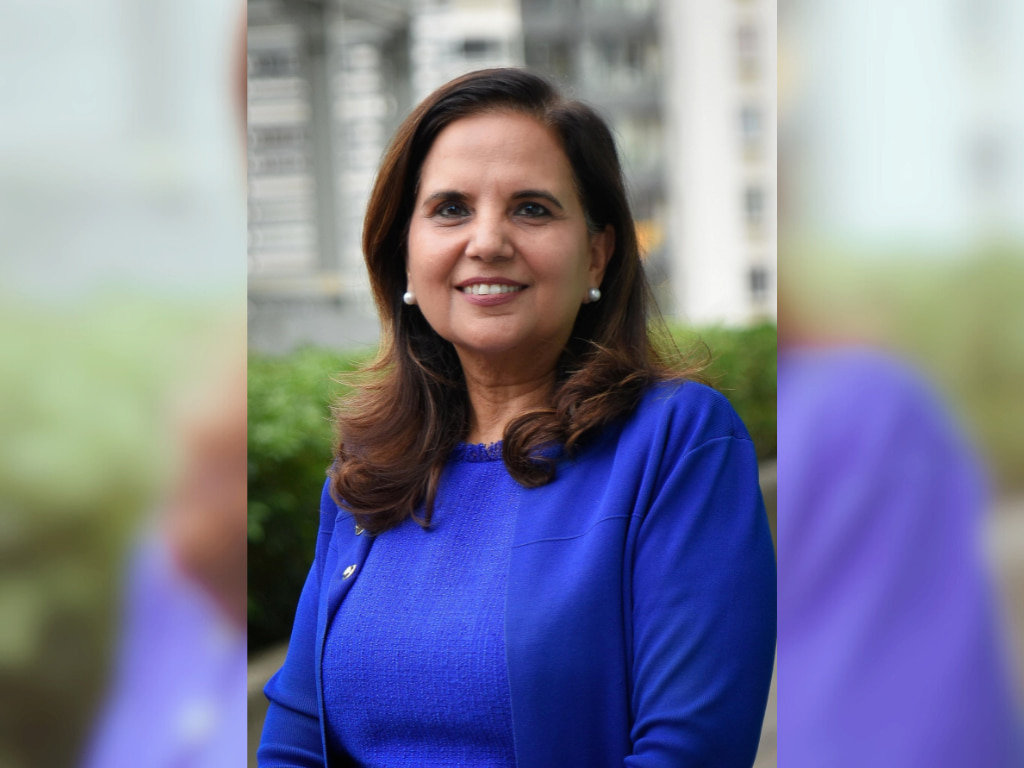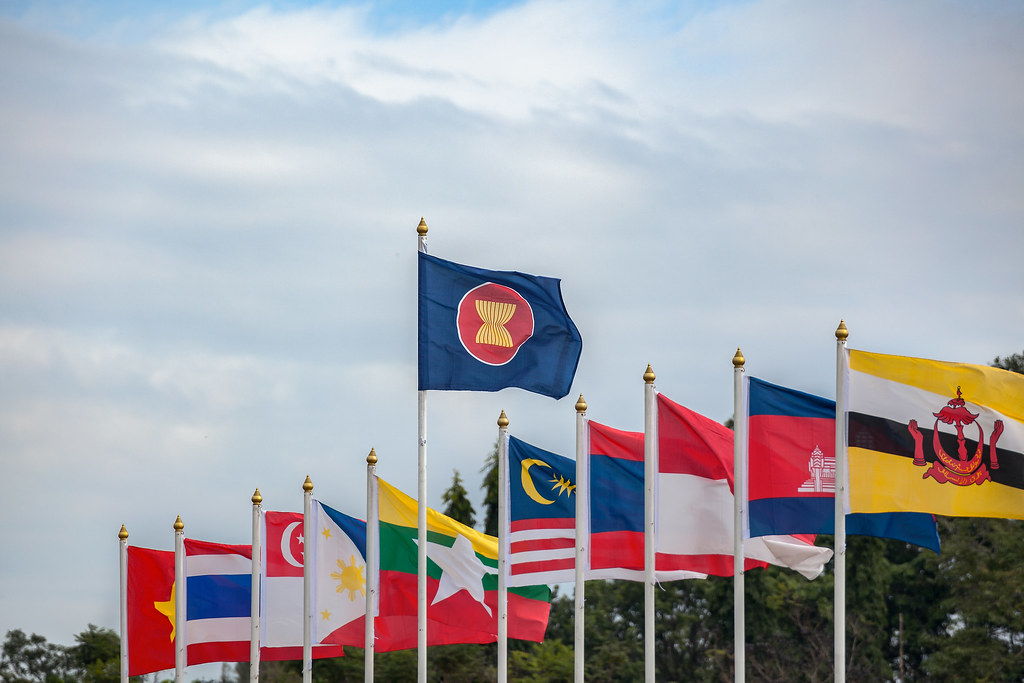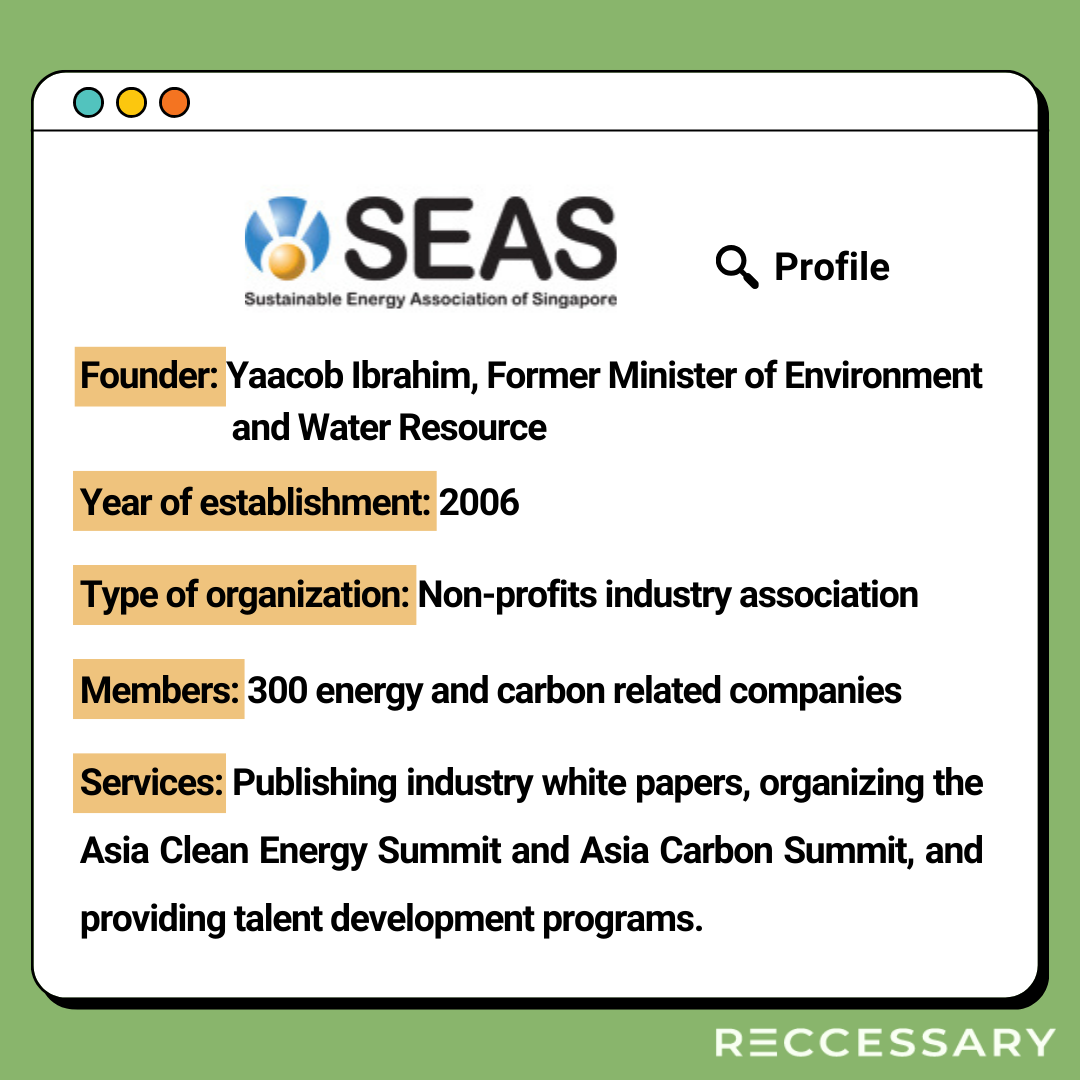
Kavita Gandhi, Executive Director of the Sustainable Energy Association of Singapore, says ASEAN should form a sovereign energy bloc to respond to global uncertainties. (Photo: SEAS)
Geopolitics and global economic shifts, ranging from the U.S.–China tensions and the return of a Trump administration, to the Iran–Israel conflict, are casting uncertainty over ASEAN’s energy transition and dampening investor confidence.
Kavita Gandhi, Executive Director of the Sustainable Energy Association of Singapore (SEAS), has put forward the idea of a “sovereign energy bloc”. She argues ASEAN nations should first build a strong internal market before expanding exports, shielding the region from external volatility. In this interview with RECCESSARY, Kavita explains the challenges of realizing such a bloc and shares her views on the region’s renewable energy development.
Four steps toward an ASEAN “Sovereign Energy Bloc”
In a recent op-ed, Kavita highlighted the fragmented nature of ASEAN’s energy market. Infrastructure and planning have developed in a piecemeal way, limiting resource efficiency across the region. This fragmentation weakens ASEAN’s bargaining power in global markets, undermines investor confidence, and even constrains economic growth.
To address this, Kavita calls for a strong regional energy bloc, with exports reinforcing collective sovereignty. She outlines four phases to achieve it:
- Strengthen domestic infrastructure: Streamline project approvals, improve grid infrastructure, and build workforce capacity to accelerate clean energy deployment.
- Prioritize regional interconnections: Expand bilateral grid links, like those between Singapore and Malaysia, and Indonesia, as testbeds for technical and regulatory alignment, paving the way toward a full ASEAN Power Grid (APG).
- Harmonize policy and finance: Coordinate standards, set up a regional power trading platform, and pool blended finance instruments to lower project risks and attract private capital at scale.
- Expand exports strategically: Only after a stable internal system is in place should ASEAN scale up clean energy exports, positioning itself not just as a supplier but as a regional price-setter.
In that article, Kavita acknowledges ASEAN cannot decouple from its export economy. But with rising power demand and uneven distribution in countries like Myanmar and Indonesia, prioritizing exports too soon would risk destabilizing domestic supply and grid stability.
When asked about the greatest challenge to create such a bloc, Kavita pointed to consensus-building. “All the ASEAN countries have to come together and say, ‘Yes, this is something we need to get behind.’ Only then can governments bring forward investment proposals, decide how to collaborate, and determine which infrastructure should be built or upgraded.”

Kavita calls for a strong regional energy bloc, with exports reinforcing collective sovereignty. (Photo: iStock)
From rivalry to synergy: ASEAN’s renewable strengths
As demand for green power surges, a collective energy strategy could spark fears of resource competition. Kavita suggested reframing the issue commercially, leveraging each country’s natural strengths to expand low-carbon supply and meet national climate goals.
She mentioned that Indonesia and the Philippines hold abundant potential of geothermal while Laos has comparative advantage in Hydropower. Agricultural residues in Indonesia, Vietnam, Malaysia, and Thailand offer strong feedstock for developing biomass & biogas.
Kavita noted that this year’s Asia Clean Energy Summit, hosted by SEAS this October, will spotlight biomass for the first time, including discussions on sustainable feedstock supply.
Looking ahead, Kavita added that emerging options such as green hydrogen and small modular reactors may be costly today but are bound to commercialize.
Kavita cited a Singapore-based photovoltaic firm that set up manufacturing in Indonesia, where the government is scaling solar capacity. “If we have our own ASEAN market, I don’t think supply chains would be a problem.” She added.
Kavita emphasized that companies of all sizes are being driven toward net zero—not only by government policy but also by falling renewable energy costs. For ASEAN, uniting around its own market is critical: ensuring secure and affordable power at home while using integration to shape industry leadership globally.
Founded in 2006, SEAS has grown from an energy efficiency-focused network of 35 firms into Singapore’s leading renewable energy industry association, now representing more than 300 members across clean power and energy solutions. Acting as a bridge between government and business, it organizes forums, publishes policy white papers, and runs training programs to build sustainability talent.

Source: Asian Power
.jpg)